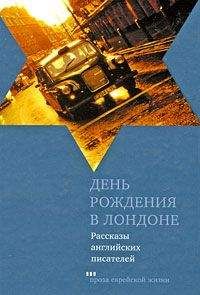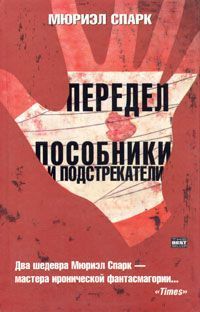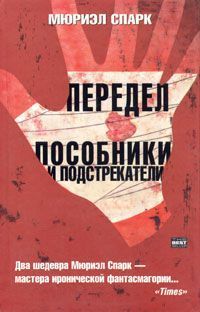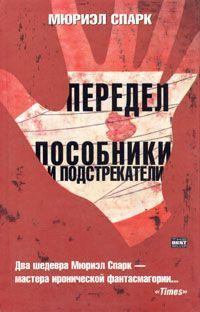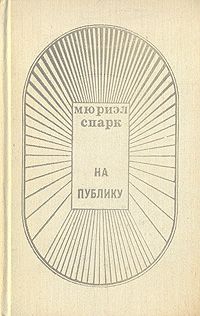Мюриэль Спарк - Английский язык с Мюриэль Спарк (рассказы)
excessive [Ik'sesIv] ascertain ["xsq'teIn] permanency ['pq: mqnqnsI]
cultus ['kAltqs] pertaining [pq'teInIN]
While not wishing to make excessive claims … many prayers answered and requests granted to the Faithful in an exceptional way … two remarkable cures effected, but medical evidence is, of course, still in reserve, a certain lapse of time being necessary to ascertain permanency of cure. The first of these cases was a child of twelve suffering fromleukaemia… The second… While not desiring to create a cultus where none is due, we must remember it is always our duty tohonourOur Blessed Lady, the dispenser of all graces, to whom we owe …
Another aspect of the information received by the Father Rector concerning our "Black Madonna " is one pertaining to childless couples of which three cases have come to his notice. In each case the couple claim to have offered constant devotion to the "Black Madonna," and in two of the cases specific requests were made for thefavourof a child. In all cases the prayers were answered. The proud parents… It should be the loving duty of every parishioner to make a special thanksgiving … The Father Rector will be grateful for any further information …
"Look, Raymond (смотри, Раймонд)," said Lou. "Read this (прочитай это)."
They decided (они решили) to put in for a baby to the Black Madonna (обратиться за ребенком к Черной Мадонне; to put in for smth. — ходатайствовать, подаватьзаявкуначто-либо).
The following Saturday (в следующую субботу), when they drove to the church for Benediction (когда они ехали в церковь на благословение; to drive — водитьмашину, ехать), Lou jangled her rosary (Лу бренчала своими: «ее» четками). Raymond pulled up outside the church (Раймонд остановился у церкви). "Look here, Lou (послушай, Лу)," he said, "do you want a baby in any case (ты хочешь ребенка при любых обстоятельствах: «в любом случае»)?" for he partly thought (так как он отчасти: «частично» думал, что) she was only putting the Black Madonna to the test (она только /хотела/ испытать /силу/ Черной Мадонны: «она только подвергала Черную Мадонну испытанию»; test — испытание, проверка) "Do you want a child (ты /действительно/ хочешь ребенка), after all these years (после всех этих лет)?"
This was a new thought to Lou (это была новая для Лу мысль). She considered her neat flat (она задумалась о своей аккуратной квартирке) and tidy routine (регулярной уборке; to tidy — прибирать, наводитьпорядок), the entertaining with her good coffee cups (приемы гостей и кофе из дорогих чашечек: «приемы гостей с ее хорошими кофейными чашками»; to entertain — приниматьгостей, развлекать), the weekly papers (еженедельные газеты; paper — бумага, документ, газета) and the library books (и книги из библиотеки), the tastes which they would not have been able to cultivate (привычки, которые они не могли бы развивать) had they had a family of children (если бы имели /семейство/ детей). She thought of (она подумала о) her nice young looks (ее приятной моложавой внешности; looks — наружность, внешнийвид) which everyone envied (которой все: «каждый» завидовали; to envy — завидовать), and her freedom of movement (и ее свободе передвижения).
jangle ['GxNg(q)l] routine [ru:'ti: n] entertaining ["entq'teInIN] envy ['envI]
"Look, Raymond," said Lou. "Read this."
They decided to put in for a baby to the Black Madonna.
The following Saturday, when they drove to the church for Benediction. Lou jangled her rosary. Raymond pulled up outside the church. "Look here. Lou," he said, "do you want a baby in any case?" for he partly thought she was only putting the Black Madonna to the test — "Do you want a child, after all these years?"
This was a new thought to Lou. She considered her neat flat and tidy routine, the entertaining with her good coffee cups, the weekly papers and the library books, the tastes which they would not have been able to cultivate had they had a family of children. She thought of her nice young looks which everyone envied, and her freedom of movement.
"Perhaps we should try (возможно мы должны попробовать),'' she said (сказала она). "God won't give us a child (Бог не пошлет: «не даст» нам ребенка) if we aren’t meant to have one (если нам не предназначено иметь его; tomean— намереваться, подразумевать, предназначать)."
"We have to make some decisions for ourselves (мы должны принять: «сделать» некоторые решения для самих себя)," he said. "And to tell you the truth (и сказать тебе по правде) ifyou don't want a child, I don't (если ты не хочешь ребенка, /то и/ я не хочу)."
"There's no harm (нет никакого вреда; harm— ущерб, беда) in praying for one (в /наших/ молитвах о /ребенке/)," she said.
'"You have to be careful (ты должна быть осторожной; careful— внимательный, тщательный, осмотрительный) what you pray for (о чем ты молишься)," he said. "You mustn’t tempt Providence (ты не должна искушать судьбу; totempt— уговаривать, соблазнять,Providence— провидение, промысел Божий)."
She thought of her relatives (она подумала о своих родственниках), and Raymond's (и /родственниках/ Раймонда), all married with children (всех женатых и с детьми). She thought of her sister Elizabeth (она подумала о своей сестре Элизабет) with her eight (с ее восьмью /детьми/), and remembered that one (и вспомнила ту /малышку/) who cheeked up to the teachers (что дерзила учителям), so pretty and sulky and shabby (такую хорошенькую и надутую и в поношенной одежде), and she remembered the fact baby Francis (она вспомнила, как малыш Фрэнсис) sucking his dummy (сосет «его» пустышку) and clutching Elizabeth's bony neck (и крепко прижимается к худой: «костлявой» шее Элизабет; toclutch— схватить, стиснуть, ухватиться).
"I don't see why I shouldn't have a baby (я не вижу /причин/, почему я не должна иметь ребенка)," said Lou.
truth [tru: T] child [CaIld] providence ['prOvId(q)ns] sulky ['sAlkI] shabby ['SxbI]
"Perhaps we should try,'' she said. "God won't give us a child if we aren't meant to have one."
"We have to make some decisions for ourselves," he said. "And to tell you the truth if you don't want a child, I don't."
"There's no harm in praying for one," she said.
"You have to be careful what you pray for," he said. "You mustn't tempt Providence."
She thought of her relatives, and Raymond's, all married with children. She thought of her sister Elizabeth with her eight, and remembered that one who cheeked up to the teachers, so pretty and sulky and shabby, and she remembered the fact baby Francis sucking his dummy and clutching Elizabeth 's bony neck.
"I don't see why I shouldn't have a baby," said Lou.
Oxford St. John departed (Оксфорд Сент-Джон уехал; to depart — уходить, покидать) at the end of the month (в конце месяца). He promised to write (он обещал писать), but they were not surprised (но они не были удивлены) when weeks passed (когда недели прошли) and they had no word (а они не получили: ни строчки: «не имели ни слова»). 'I don't suppose (/я/ не думаю) we shall ever hear from him again (что бы услышим о нем: «от него» снова)," said Lou. Raymond thought (Раймонд думал, что) he detected satisfaction in her voice (он заметил удовлетворение в ее голосе; to detect — находить, расследовать, обнаруживать), and would have thought she was getting snobbish (и уже подумал бы, что она превращается в сноба; snobbish — снобистский, чванливый) as women do as they get older (какими становятся женщины: «как женщины делают», когда стареют), losing sight of their ideals (забывая о своих идеалах; to lose sight of — упуститьизвиду, неучесть), had she not gone on to speak of Henry Pierce (если бы она не продолжала говорить о Генри Пирсе). Henry had written to say (Генри написал, чтобы сообщить: «сказать») he was nearly cured (что он почти излечился), but had been advised to return to the West Indies (но ему посоветовали вернуться в Вест-Индию /на родину/; toadvise— советовать, рекомендовать).
"We must go and see him (мы должны поехать навестить его; goandsee— приходить, навещать)", said Lou. "We promised (мы обещали). What about the Sunday after next (как насчет воскресенья, через неделю: «воскресенья после следующего»)?"
"O. K (хорошо)." said Raymond.
It was the Saturday before that Sunday (/это было/ в субботу перед именно этим воскресеньем) when Lou had her first sick turn (когда Лу впервые почувствовала тошноту; sick— чувствующий тошноту, болезненный). She struggled out of bed to attend Benediction (она с трудом встала с кровати, чтобы присутствовать на благословении; tostruggle — бороться, сражаться), but had to leave suddenly during the service (но вынуждена была внезапно покинуть службу: «во время службы»; service— работа, служба, богослужение) and was sick behind the church (и ее вырвало за церковью; tobesick— чувствовать себя больным, вырвать) in the presbytery yard (во дворе дома священника). Raymond took her home (Раймонд отвез: «забрал» ее домой), though she protested against (хотя они и протестовала против) cutting out her rosary to the Black Madonna (прерывания ее молитв /по четкам, обращенным/ к Черной Мадонне).
satisfaction ["sxtIs'fxkS(q)n] snobbish ['snObIS] Saturday ['sxtqdI]
Oxford St.John departed at the end of the month. He promised to write, but they were not surprised when weeks passed and they had no word. "I don't suppose we shall ever hear from him again," said Lou. Raymond thought he detected satisfaction in her voice, and would have thought she was getting snobbish as women do as they get older, losing sight of their ideals, had she not gone on to speak of Henry Pierce. Henry had written to say he was nearly cured, but had been advised to return to the West Indies.
"We must go and see him", said Lou. "We promised. What about the Sunday after next?"
"O. K." said Raymond.
It was the Saturday before that Sunday when Lou had her first sick turn. She struggled out of bed to attend Benediction, but had to leave suddenly during the service and was sick behind the church in the presbytery yard. Raymond took her home, though she protested against cutting out her rosary to the Black Madonna.
''After only six weeks (после всего шести недель)!'' she said, and she could hardly tell (и она вряд ли могла сказать) whether her sickness was due to excitement or nature (чем была вызвана ее тошнота — волнением или беременностью: «была ли ее тошнота из-за возбуждения или природы»). "Only six weeks ago (всего шесть недель назад)," she said — and her voice had a touch of its old Liverpool (и в ее голосе звучала нотка /маленькой девочки из/ Ливерпуля: «голос имел оттенок его /голоса/ старого Ливерпуля») — ''did we go to that Black Madonna (отправились мы к /той/ Черной Мадонне) and the prayer's answered, see (и /наши/ молитвы услышаны, видишь)." Raymond looked at her in awe (Раймонд посмотрел на нее с трепетом; awe — благоговейныйстрах, трепет) as he held the bowl for her sickness (держа тазик, пока ее тошнило; bowl — миска, таз, чашка).
"Are you sure (ты уверена)?" he said.
She was well enough next day (она достаточно хорошо чувствовала себя на следующий день; to be well — бытьздоровым, чувствоватьсебяхорошо) to go to visit Henry in the sanatorium (чтобы отправиться навестить Генри в санатории). He was fatter (он растолстел: «был толще») and, she thought (и, как ей показалось: «она думала»), a little coarser and tough in his manner (немного грубее и жестче в поведении), as if once having been nearly disembodied (казалось, что: «как если бы» его уже пытались освободить от телесной оболочки; to disembody — делатьбесплотным) he was not going to let it happen again (и он не собирался допустить этого во второй раз: «снова»; to let — разрешать, дозволять; to happen — случаться). He was leaving the country very soon (он покидал страну очень скоро). He promised to come and see them before he left (он обещал приехать навестить их до своего отъезда: «до того, как он уедет»). Lou barely skimmed through his next letter (Лу просто бегло просмотрела его следующее письмо; toskimthrough— бегло просматривать) before handing it over to Raymond (а затем: «до того как» передала его Раймонду; tohand— вручать).
